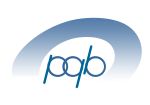T 80v18 - E-Learning - ISO 22000 training package - Readiness and internal audit of your food safety management system FSMS version 2018
E-Learning (online courses) - Implementation, maintenance, improvement and internal audit of your food safety management system ISO 22000 version 2018. You save 75 euros on the second course and 73 euros on provided documents!
Description
T 20v18 ONLINE TRAINING ISO 22000 readiness version 2018
Discover the ISO 22000 standard version 2018 and
- its content
- its principles
- its requirements
- the stakes
Get used to
- food safety management system (FSMS)
- process approach
- risk-based thinking
- food safety terminology
- food safety documents ISO 45001
- ISO 22000 readiness documentation
- ISO 22000 internal audit documentation
- continual improvement
The important and fundamental elements of a quality management system
- food safety approach
- process approach (definitions, process types, mapping)
- business context
- FSMS requirements (organization, legal requirements, documentation)
- leadership of top management (commitments, policy, responsibilities)
- FSMS planning (risks, actions, objectives)
- support (resources, communication, documented information)
- realization of safe products (planning, prerequisite programs, HACCP plan)
- performance evaluation (monitoring, measurement, analysis, internal audits, management review)
- improvement (non-conformities, corrective actions)
The menu of the course
- Presentation
- MCT (multiple-choice test) Beginning (10 questions)
- 1 Food safety approach
- 1.1 Background
- 1.2 Scope
- 1.3 Steps
- 2 Standards, definitions, books
- 2.1 Standards
- 2.2 Definitions
- 2.3 Books
- MCT Food safety approach (9 questions)
- 3 Process approach
- 3.1 Process
- 3.1.1 Management process
- 3.1.2 Realization process
- 3.1.3 Support process
- 3.2 Process mapping
- 3.3 Process approach
- 3.1 Process
- MCT Process approach (6 questions)
- 4 Context of the organization
- 4.1 The organization and its context
- 4.2 Interested parties
- 4.3 Scope
- 4.4 FSMS
- Case Interested parties
- Case Customer and need
- MCT Context of the organization (6 questions)
- 5 Leadership
- 5.1 Leadership and commitment
- 5.2 FS policy
- 5.3 Roles
- MCT Leadership (9 questions)
- 6 Planning
- 6.1 Actions to address risks
- 6.2 FS objectives
- 6.3 Changes
- Case New line
- MCT Planning (7 questions)
- 7 Support
- 7.1 Resources
- 7.2 Competence
- 7.3 Awareness
- 7.4 Communication
- 7.5 Documented information
- Case Selection of suppliers
- Case Communication
- MCT Support (10 questions)
- 8a Realization of safe products
- 8.1 Operational control
- 8.2 PRPs
- 8.3 Traceability
- 8.4 Emergencies
- 8.5 Hazard control
- Case Food hazard
- Case Process stability
- MCT Realization a (12 questions)
- 8b Realization of safe products
- 8.5.3 Validation
- 8.6 Update of PRPs
- 8.7 Inspection control
- 8.8 Verification of PRPs
- 8.9 Control of nonconformities
- Case Nonconformities
- Case Priority tasks
- MCT Realization b (14 questions)
- 9 Performance evaluation
- 9.1 Monitoring, measurement, analysis and evaluation
- 9.2 Internal audit
- 9.3 Management review
- Case Audit program
- Case Management review
- MCT Performance evaluation (9 questions)
- 10 Improvement
- 10.1 Nonconformity
- 10.2 Continual improvement
- 10.3 Update of the FSMS
- Case Kaizen & problem
- MCT Improvement (7 questions)
- MCT End (20 questions)
T 40V18 ONLINE TRAINING ISO 22000 Internal audit VERSION 2018
Discover the internal audit in an ISO 22000 certified company and
- locate the audit in the food safety approach
- identify the stakes
- understand the requirements
- control the tools
Get used to
- best practices
- good behavior
- the terminology
- the questionnaire
- the report
The important and fundamental elements of an internal audit
- scope
- normative references
- principles
- audit program (responsibilities, records)
- audit conducting (objectives, evidence, conclusions)
- auditor competence (knowledge, training)
The menu of the course
- Presentation
- MCT (multiple-choice test) Beginning (10 questions)
- 1 Scope
- 2 Normative references
- 3 Definitions
- 4 Principles
- 4.1 Management principles
- 4.2 Audit principles
- 4.3 FSMS performance
- MCT Internal audit (6 questions)
- 5 Audit program
- 5.1 General
- 5.2 Objectives
- 5.3 Risks
- 5.4 Establishing
- 5.5 Implementing
- 5.6 Monitoring
- 5.7 Reviewing and improving
- Case Audit program
- MCT Audit program (10 questions)
- 6a Audit preparation
- 6.1 General
- 6.2 Initiating
- 6.2.1 First contact
- 6.2.2 Situations and feasibility
- 6.3 Preparing the audit
- 6.3.1 Document review
- 6.3.2 Audit plan
- Case Audit readiness
- MCT Audit preparation (7 questions)
- 6b Conducting an audit
- 6.4 Audit activities
- 6.4.1 Opening meeting
- 6.4.2 Audit evidence
- 6.4.3 Audit conclusions
- 6.5 Audit report
- 6.6 Completing audit
- 6.7 Audit follow-up
- 6.4 Audit activities
- Case Audit report
- Case Management review
- MCT Performing an audit (8 questions)
- 7 Competence and evaluation of auditors
- 7.1 General
- 7.2 Auditor competence
- 7.3 Evaluation criteria
- 7.4 Evaluation methods
- 7.5 Auditor evaluation
- 7.6 Improving competence
- Case Auditor question
- MCT Auditor competence (7 questions)
- MCT End (20 questions)




